Recycled cooking oil fuels green possibilities in Davao
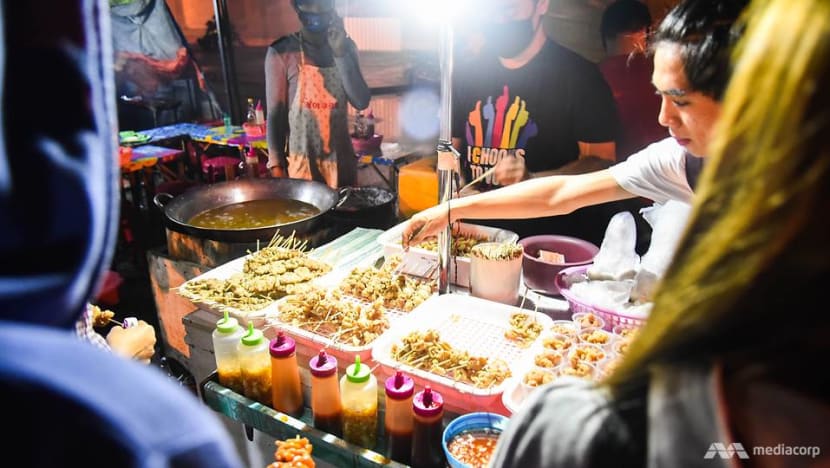
Cooking oil is widely used in the Philippines but most of it ends up being discarded. (Photo: Jack Board)
DAVAO CITY, Philippines: The lapping water on the shorefront of Barangay Sasa in Davao City is murky and greasy. Grey in colour, it has killed off attempts by local residents to grow mangroves and left a toxic mark on the village’s fishing industry.
“This area here, many years ago, was a very lively area. Many people came here to take a bath and go fishing but now it’s already barren,” lamented local barangay captain Juanito Flores.
He says millions of pesos have been spent trying to revive the waterway but to no avail. Human and industrial waste has ruined this environment.
Much of the blame lies with a simple, common waste product generated by all of the 60,000-strong community here – used cooking oil. Filipinos have a well-known adoration for fried food, the by-product of which typically seeps out of sight and mind, discarded down drains and washed away.
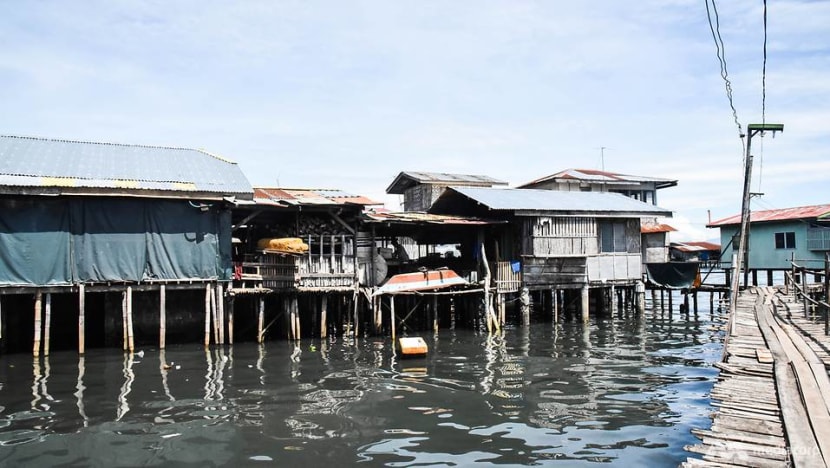
It was this type of problem in communities throughout Davao that led to the formation of a government programme to recycle oil, the first of its kind in the country.
Now in Sasa, residents actively recycle the oil they have used in their kitchens. At a central location, they bring half full plastic bottles of the gloomy liquid where it is mixed into a wicked oily cocktail before being stored and collected.
For the villagers, it is an act of selflessness and discipline in many regards; there is no money on offer or any other incentive for the residents apart from the reward of doing good by nature.
“At first when we started this kind of collection, I never had in mind that we will collect the volume like this, but now it’s very good,” Flores said.
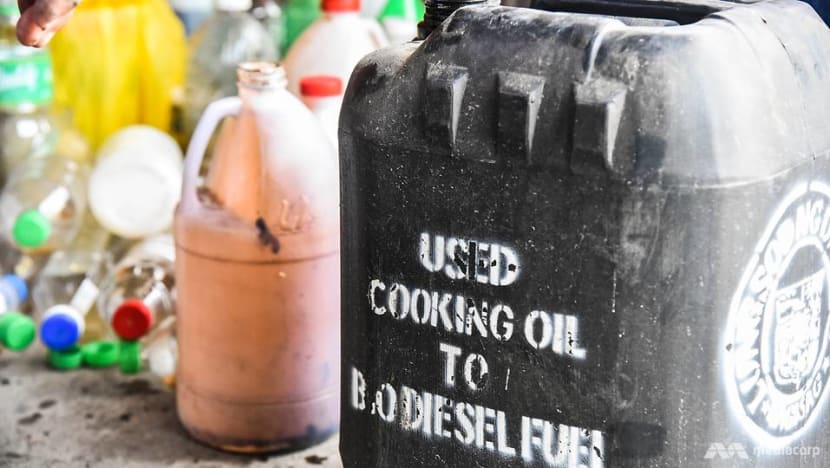
Across the city, the oil is adding up for a purpose. More than 10,000 litres of what would otherwise be discarded by communities and businesses, including fast food outlets, is being collected every month and being transformed into something useful – biodiesel.
In keeping with its reputation as a business and innovation hub, Davao has been at the centre of green initiatives in the Philippines. This has fuelled the rise of a green movement in the city, which has led Filipinos to innovate and devise efficient ways to reduce pollution, and tap on green energy.
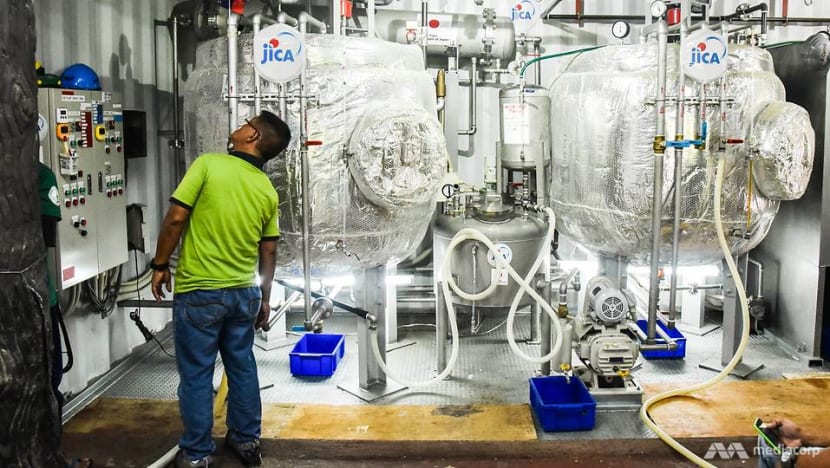
“It’s an eco-friendly technology with less harmful emissions,” said the engineer in charge of running the plant, Mario Tombo. “While other diesel fuel has carbon dioxide, this biodiesel has no emissions at all. So it’s very good.”
Several Davao City trucks and service vehicles now run exclusively using biodiesel processed by the plant on a daily basis. The inside of the facility resembles a science laboratory with expensive silver machinery that reacts, refines and distillates the brown liquid.
The entire plant is self-sustainable in terms of electricity use too; it is powered by a generator that uses the biodiesel.
“It’s about the transfer of technology,” Tombo said. “We can process almost every day. So we process about 1000 litres of used cooking oil, with about 90 per cent of that you can produce the finished product.
“Then the 10 per cent waste will not be thrown away but we can use it for our combusting. We can mix it in our combust for soil conditioning. So there’s no waste at all.”
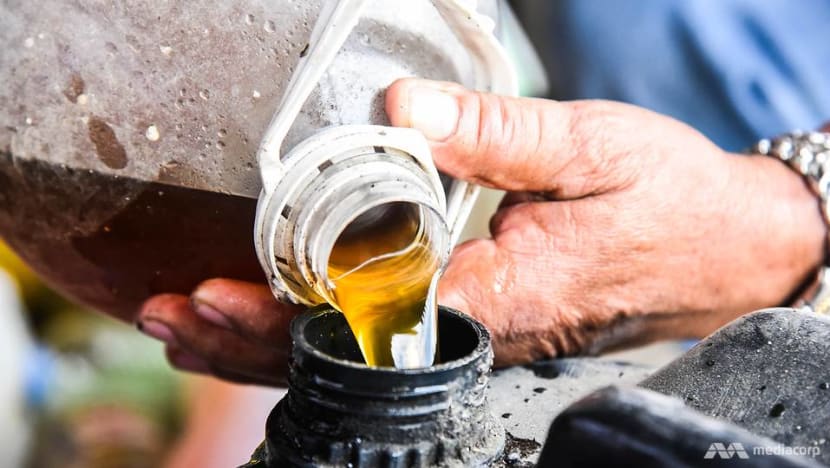
While restricting its biodiesel use to heavy city-run vehicles for now, Davao City could eventually trial the use of the fuel in jeepneys, the ubiquitous diesel-fuelled bus-like vehicles, modified from US army jeeps. They provide millions of people with public transport around the Philippines every day but are heavily polluting and despite a government pledge to upgrade the vehicles to cleaner alternatives, resistance from the industry means progress has been slow.
If adopted widely though, bio-diesel could provide a more environmentally-friendly option, and Tombo admits there is interest from other local governments looking at the potential of the technology.
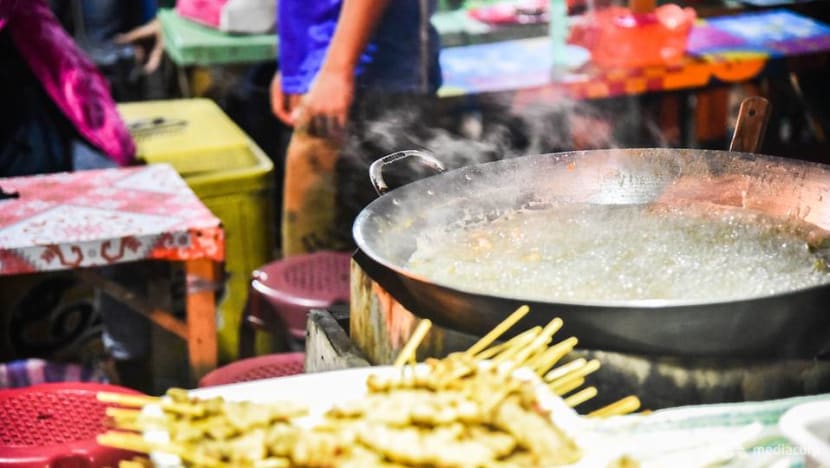
“Some other cities and municipalities are coming here in Davao just to learn this technology and they also study about our environment,” he said.
“We welcome them here because I don’t think it’s just the problem of Davao but other places here in the Philippines. So step by step maybe we can solve this problem.”
For more on this and other projects around Southeast Asia, tune in to Tapestry: The Heart of ASEAN on Channel NewsAsia every Tuesday from Feb 27 to Mar 27 at 11pm.














